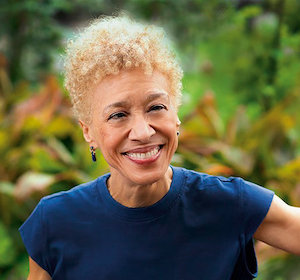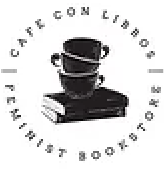Black and Female
Friday, January 20, 2023, 7 - 8:30pm

Zimbabwean novelist, playwright, and filmmaker Tsitsi Dangarembga is joined by Pulitzer Prize-winning cultural critic Margo Jefferson to discuss Black and Female, Dangarembga’s new essay collection that weaves the personal and political in an illuminating exploration of race and gender. The conversation is being held as part of The Cooper Union’s ongoing series around the theme of intersectional justice.
The paradigm-shifting collection examines the legacy of imperialism on Dangarembga own life and on every aspect of black embodied African life. She recounts a painful separation from her parents as a toddler, connecting this experience to the ruptures caused in Africa by human trafficking, enslavement and colonization. She argues that, after independence, the ruling party in Zimbabwe only performed inclusion for women while silencing the work of self-actualized feminists. She describes her struggles to have her voice heard in theater, film, and literature, laying out the long path to the publication of her novels. At once philosophical, intimate, and urgent, Black and Female is a powerful testimony of the pervasive and long-lasting effects of racism and patriarchy that provides an ultimately hopeful vision for change. Café con Libros will sell books at the program.
Attendees must show proof of vaccination. Masks are encouraged.
Tsitsi Dangarembga is the author of This Mournable Body, which was short-listed for the Booker Prize, and is the final chapter of her Tambudzai Trilogy, which traces the life of a rural girl from her childhood in colonial Zimbabwe to her adulthood in a country repressed by political elites. She is also a filmmaker, playwright, and the director and founder of the Institute of Creative Arts for Progress in Africa Trust. She won the PEN Award for Freedom of Expression, the PEN Pinter Prize, and the Peace Prize of the German Book Trade in 2021, and a Windham-Campbell Prize in Fiction in 2022. In 2022, she was named one of the Financial Times' 25 Most Influential Women.

Margo Jefferson teaches in the Writing Program at Columbia University. She is a recipient of the 2022 Windham-Campbell Prize in Nonfiction, and has published three books: Constructing a Nervous System: A Memoir; Negroland: A Memoir; which won the 2015 National Book Critics Circle Award for autobiography; and On Michael Jackson. She was on the staff of The New York Times from 1993 to 2005 as an arts critic. She has also written for numerous magazines and newspapers such as The Washington Post, The Nation, Newsweek, and Salon. Her work has been anthologized in The Mrs. Dalloway Reader, Best African American Essays: 2010, The Jazz Cadence of American Culture, and elsewhere.
This series is co-organized by the Office of Student Affairs and Nada Ayad, Associate Dean of HSS, as a continuation of a reading and discussion series for first-year students that was held as part of the Fall 2020 new student orientation. In the spirit of The Cooper Union mission, the Black Student Union and the Cooper Climate Coalition, along with several other Cooper students and faculty, were deeply involved in the articulation of the program as well as in contributing to the reading list and suggesting speakers.

Located in the Frederick P. Rose Auditorium, at 41 Cooper Square (on Third Avenue between 6th and 7th Streets)




